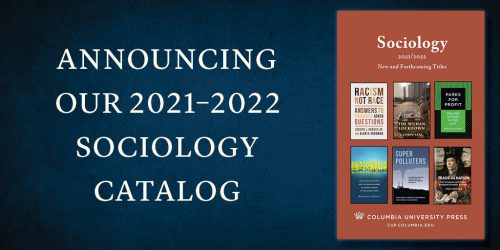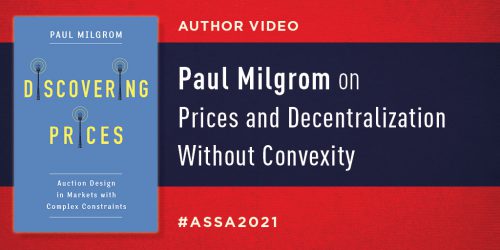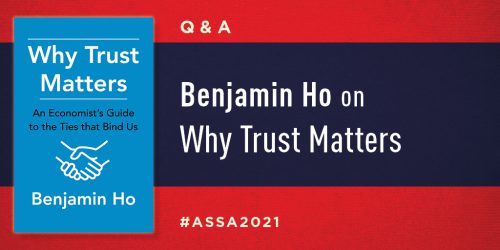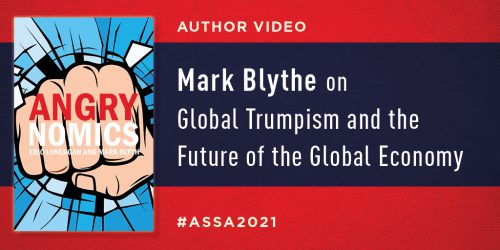Proving Hamlet Wrong: Doubt and Action in the Life of Albert Hirschman
By Michele Alacevich
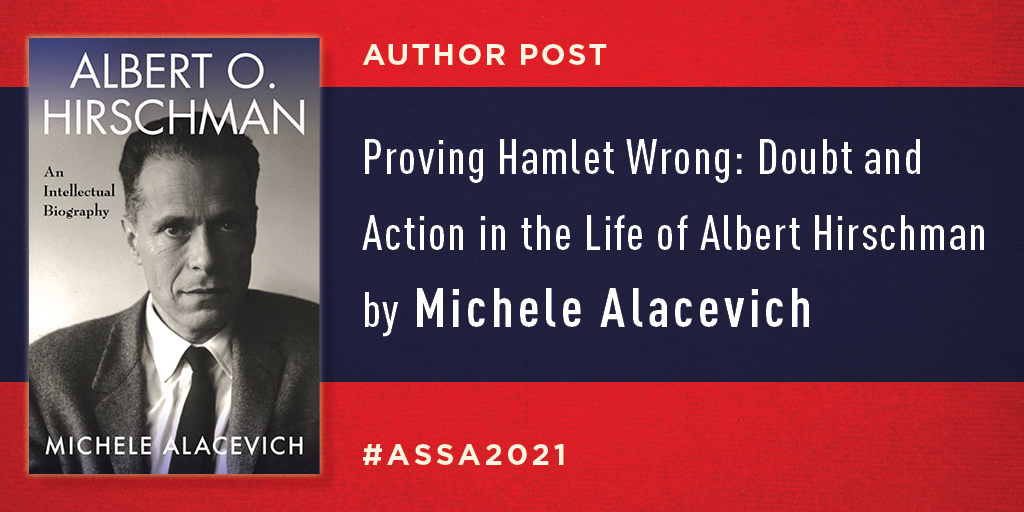
“This wonderful book offers new insights on a giant of the social sciences. Alacevich places Hirschman’s work in intellectual context and traces its long arc of influence to our day.”
—Dani Rodrik, author of Straight Talk on Trade: Ideas for a Sane World Economy
Today’s featured AEA post comes to use from Michele Alacevich, author of the forthcoming book, Albert O. Hirschman: An Intellectual Biography. Alacevich is an associate professor of economic history and the history of economic thought at the University of Bologna. In this intellectual biography, he explores the development and trajectory of Hirschman’s characteristic approach to social-scientific questions.
• • • • • •
Albert Hirschman was not, by any standard, a typical scholar. German by birth, by the age of thirty he had fought in two wars and lived in seven different countries on three continents. He spoke and wrote in five languages, used multiple pseudonyms, and could pass as a native Frenchman. He held positions at a dozen elite institutions without having earned an advanced degree. Observed superficially, his scholarly output might first appear to be a crazy quilt of topics and methodologies. Yet he is one of the most important and influential social scientists of the twentieth century.
When he died in December 2012 at the age of ninety-seven, the concepts and intuitions he shaped throughout his career had long entered the standard vocabulary of many disciplines. “Exit Albert Hirschman,” wrote the Economist, a one-word reference to his most famous work sufficing to pay homage to the man and his legacy. His independence of thought and originality were particularly praised; he was described as a “lateral thinker,” an “unusual thinker,” and “heretical.” Indeed, he had earned those accolades thanks to a number of beautiful breakthrough analyses and an uncommon writing style—as the Economist quipped, “Mr. Hirschman wrote better in his third language than most economists do in their first,” but at the price of risking (and at times experiencing) professional marginalization. And yet he made it to the pinnacle of his profession, as a faculty member of the Institute for Advanced Study in Princeton, unanimously considered by colleagues and students to be in a league of his own. In 2007, the U.S.-based Social Science Research Council instituted the Albert O. Hirschman Prize as its highest honor.
Decade after decade throughout his long life, Hirschman made groundbreaking contributions to economics and the social sciences. Far from being a series of explorations followed without rhyme or reason, together they map out an intellectual trajectory of startling imagination and profound coherence. What’s more, his perspective was broad enough that it could encompass all the social sciences under one disciplinary umbrella, thereby changing their very parameters, so much so that he preferred to speak of one interpretive social science. By the end of his scholarly career, Hirschman was one of the most admired thinkers alive—and one of those most difficult to imitate.
By the end of his scholarly career, Hirschman was one of the most admired thinkers alive—and one of those most difficult to imitate.
Though Hirschman received his share of criticism during his scholarly career, evaluations of his work tend to emphasize its originality, indeed its genius, and downplay its more troubling aspects. In the intellectual biography of this polyhedral scholar, I have tried to present my analysis without shying away from the problems in Hirschman’s work. He was a profoundly original thinker, so it is tempting to highlight his uniqueness and inadvertently put him on a sort of pedestal. Hirschman once described his way of thinking about given analyses as “It ain’t necessarily so.” In my way, I have tried to make Hirschman’s “It ain’t necessarily so” attitude my own, adopting his outlook on the world to look at him and put him in context without bias.
Despite the virtually unanimous agreement about his importance, describing Hirschman’s legacy and influence on others is not an easy task—arguably because he was indeed in a league of his own. To be sure, his search for fresh perspectives was so eclectic that, as many have noticed, no recognizable “school” has ever developed in his footsteps. Yet Hirschman remains a crucial reference point for the social sciences, even more in years like these. when ambitious intellectual edifices have exposed their limits and students everywhere are arguing that we must “rethink” scholarly disciplines.
The first and easiest point to be made is Hirschman’s resistance to precooked recipes and standard explanations. Not exactly a contrarian, the word he used to define himself was instead dissenter, and his dissent addressed the static nature of a wide array of orthodoxies and “structural” analyses, in particular their tendency to sacrifice complexity to predictability, context-specificity to comprehensiveness, and their propensity to downplay doubt in favour of certainty. Tellingly, an article he published in 1984 was titled “Against Parsimony: Three Easy Ways of Complicating Some Categories of Economic Discourse.”
Throughout his own life, Hirschman experienced plenty of occasions to become diffident about strong and rigid certainties. Doubt, in fact, became a fundamental element of his way of looking at the world—though without the paralysis that is often associated with it. Hirschman liked to describe this attitude as “proving Hamlet wrong”: doubting is not a force conducive to abstraction and paralysis, but rather is the foundation for commitment to action.
Doubt, in fact, became a fundamental element of his way of looking at the world—though without the paralysis that is often associated with it.
Indeed, proving Hamlet wrong was the foundation of Hirschman’s deeply reformist convictions. As he wrote, “for a democracy to function well and to endure, it is essential . . . that opinions not be fully formed in advance of the process of deliberation.” It was this combination of participation in the public conversation with doubt, tentativeness, and intellectual openness that he considered “the ideal micro-foundation of a democratic politics.”
Hirschman’s emphasis on the concept of “possibilism” is arguably the most explicit statement of what he considered his contribution to the study of social change and the practice of reformist activism. Most social scientists focus on explaining the regularities of social dynamics, and this is obviously an important task. But Hirschman emphasized the opposite type of endeavour: “an approach to the social world that would stress the unique rather than the general, the unexpected rather than the expected, and the possible rather than the probable.”
Hirschman’s attention to the possible over the probable, to conjuncture over structure, is the basis of yet another of his deep-rooted predilections and a fundamental element of his cognitive style, namely, the importance of history. In diametric opposition to the standards of social analysis that took shape after World War II, Hirschman considered the study of history an enormously rich and necessary source for understanding social change—though, or perhaps precisely because, it was also “the despair of the paradigm-obsessed social scientist.”
Indeed, proving Hamlet wrong was the foundation of Hirschman’s deeply reformist convictions
To reflect on the “many might-have-beens of history” was necessary for accepting the basic unpredictability of human action. Nobody foresaw the 1989 Eastern European revolutions, and yet the wall came down and Rostropovich played his cello en plein air. Hirschman loved the “inventiveness of history,” just as he appreciated Marx the historian of the Eighteenth Brumaire more than Marx the theoretician.
Perhaps where Hirschman’s deep reformist attitude emerged most clearly was in his studies on economic development: how less developed countries can move forward and create the economic, social, and political conditions for improving the well-being of their citizens. Hirschman, though never a conservative, always rejected revolutionary options, from the grand comprehensive economic plan that promises to bring to a country the magic of modernization to the armed political upheaval that promises a new society. It was not because of ideological opposition—after all, he fought in the Spanish Civil War when democracy was at stake and enlisted in the U.S. Army to fight Nazi-fascism in Europe—rather, Hirschman did not believe in all-encompassing change because it was simplistic.
The real challenge, for Hirschman, has always been to understand how the process of change actually happens and how to help this process overcome the obstacles, setbacks, and unexpected difficulties that always arise. This was his reformism, deeply imbued with doubt, curiosity, creativity, “a bias for hope” (as the title of one of his books goes), and a drive to action. As he wrote, “Reformers . . . behave like the country or the chessplayer who exasperatingly fights on when ‘objectively’ he has already lost—and occasionally goes on to win!” It is this optimistic, even joyful, reformism that we need today more than ever.
Save 20 percent on our conference titles on display when you use coupon code AEA at checkout from our website by March1, 2021.

